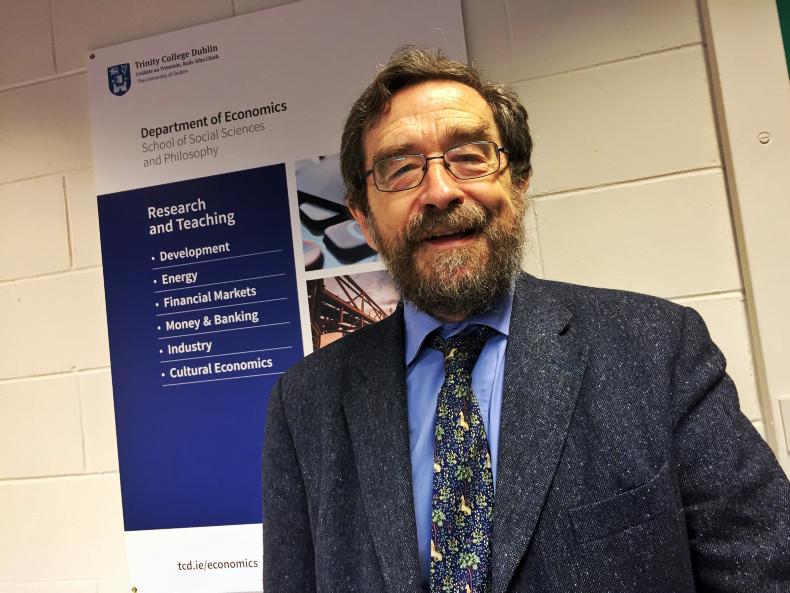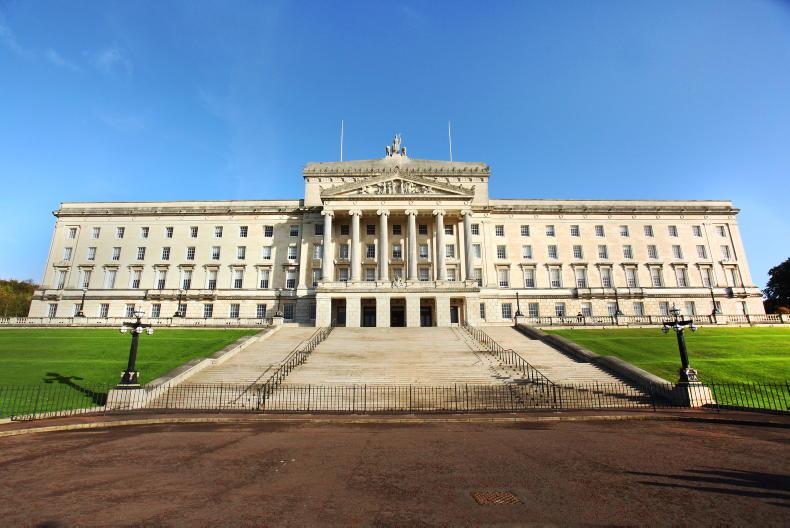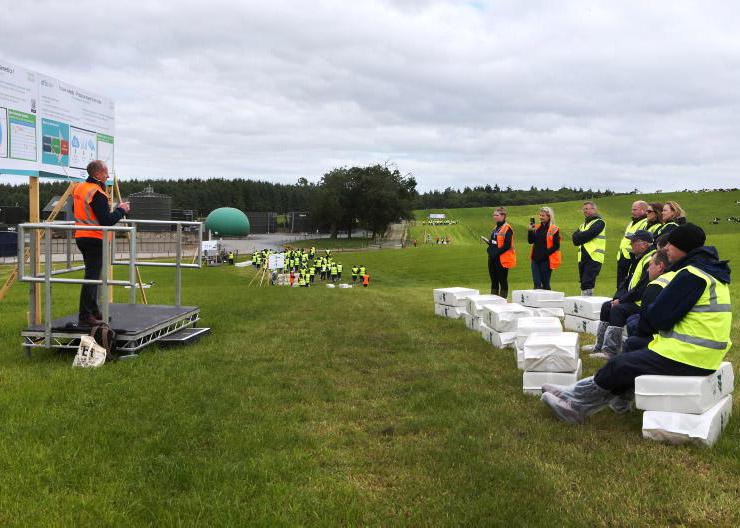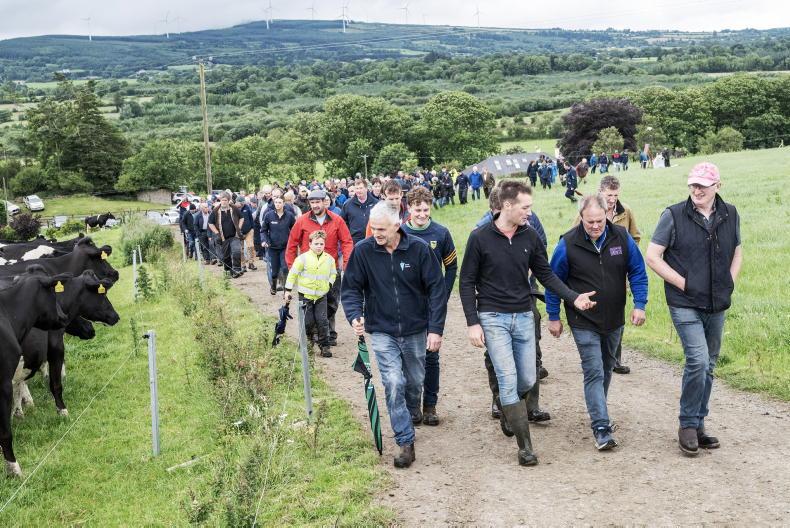Over the coming year, the world’s scientists will compile the latest knowledge on agriculture and climate change, the new CAP will assign new environmental obligations to European farmers and Ireland’s Climate Change Advisory Council will give its own recommendations to the Government on agriculture, council chair Prof John Fitzgerald told the Irish Farmers Journal.
This will put pressure on the Government to clarify what it means by the “approach to carbon neutrality in agriculture” it has promised by 2050.
“We would like the Department of Agriculture to define what the objective is,” the Trinity College economist said – for example, a cap on greenhouse gas emissions. “Then you can consider what the best policies are to achieve it.”
Listen to "‘Objective is not to get rid of all livestock’ – chief climate advisor" on Spreaker.
“The people of Ireland have committed through their politicians and with the EU to having no further negative impact on the climate after 2050 and that’s what we signed up to in Paris. It affects everybody, there’s no exemption from this,” he said. While other industries should just move away from fossil fuels, agriculture is more complex.
The council’s 11 experts – including the heads of Teagasc and the EPA – will focus on agriculture in the next six months and publish their advice on the most cost-effective policies mid-2019.
Fitzgerald suggested this may include radical solutions. “Farmers make a decent income out of dairying,” he said. “Avoiding getting out of dairy would be a priority.” But he added: “Most farmers make nothing out of raising cattle for meat purposes.”
Instead, their land could grow forestry or biomass, which removes greenhouse gases from the atmosphere while generating income. “You could see a win-win,” Fitzgerald said. “Can we design a strategy which tackles the problem of climate change and leaves the agricultural community better off?”
He acknowledged problems with such land use change, including the irreversibility and slow returns of planting forestry. “As an economist on my spreadsheet, I might design a scheme which in theory would make the agricultural community better off, but life is far more complex than a spreadsheet,” he said.
“It’s not going to work unless you think of the people you are talking to,” he added, suggesting “a mix of sticks and carrots”.
Methane
Fitzgerald said that methane, the main greenhouse gas from agriculture, breaks down in the atmosphere after 12 years, while carbon dioxide from fossil fuel combustion remains for centuries.
As a result, carbon-neutral agriculture “doesn’t necessarily mean getting rid of all livestock”. This is why he disagrees with the Citizens’ Assembly’s proposal to impose a climate tax on livestock.
Fitzgerald said methane was less understood when current greenhouse gas accounting calculations were devised by the Intergovernmental Panel on Climate Change (IPCC), a UN group of scientists appointed by all countries in the world. Current rules including EU targets up to 2030 consider that 1t of methane has the same global warming potential as 25t of carbon dioxide.
The IPCC will publish updated guidelines in May, and a special report on climate change and agriculture next September. “This is an evolving era,” Fitzgerald said.
A minority of climate change sceptics have challenged the IPCC further, saying it has exaggerated the role of methane. Among them, the Irish Climate Science Forum lobby group which invited Canadian physicist William van Wijngaarden to Dublin last week.
He argued that the way methane absorbs heat radiation and its concentration in the atmosphere mean that livestock contribution to climate change is “insignificant.”
However Fitzgerald’s trust remains with the global consensus: “Ultimately we will all rely on the IPCC process where the world’s scientists get together and agree what science says,” he said.
Read more
Watch: no climate tax on cattle
Peatland used for agriculture should be ‘targeted’ for rewetting
Climate not the only factor in finding livestock balance
Energy Now exhibition returns to Kilkenny
Over the coming year, the world’s scientists will compile the latest knowledge on agriculture and climate change, the new CAP will assign new environmental obligations to European farmers and Ireland’s Climate Change Advisory Council will give its own recommendations to the Government on agriculture, council chair Prof John Fitzgerald told the Irish Farmers Journal.
This will put pressure on the Government to clarify what it means by the “approach to carbon neutrality in agriculture” it has promised by 2050.
“We would like the Department of Agriculture to define what the objective is,” the Trinity College economist said – for example, a cap on greenhouse gas emissions. “Then you can consider what the best policies are to achieve it.”
Listen to "‘Objective is not to get rid of all livestock’ – chief climate advisor" on Spreaker.
“The people of Ireland have committed through their politicians and with the EU to having no further negative impact on the climate after 2050 and that’s what we signed up to in Paris. It affects everybody, there’s no exemption from this,” he said. While other industries should just move away from fossil fuels, agriculture is more complex.
The council’s 11 experts – including the heads of Teagasc and the EPA – will focus on agriculture in the next six months and publish their advice on the most cost-effective policies mid-2019.
Fitzgerald suggested this may include radical solutions. “Farmers make a decent income out of dairying,” he said. “Avoiding getting out of dairy would be a priority.” But he added: “Most farmers make nothing out of raising cattle for meat purposes.”
Instead, their land could grow forestry or biomass, which removes greenhouse gases from the atmosphere while generating income. “You could see a win-win,” Fitzgerald said. “Can we design a strategy which tackles the problem of climate change and leaves the agricultural community better off?”
He acknowledged problems with such land use change, including the irreversibility and slow returns of planting forestry. “As an economist on my spreadsheet, I might design a scheme which in theory would make the agricultural community better off, but life is far more complex than a spreadsheet,” he said.
“It’s not going to work unless you think of the people you are talking to,” he added, suggesting “a mix of sticks and carrots”.
Methane
Fitzgerald said that methane, the main greenhouse gas from agriculture, breaks down in the atmosphere after 12 years, while carbon dioxide from fossil fuel combustion remains for centuries.
As a result, carbon-neutral agriculture “doesn’t necessarily mean getting rid of all livestock”. This is why he disagrees with the Citizens’ Assembly’s proposal to impose a climate tax on livestock.
Fitzgerald said methane was less understood when current greenhouse gas accounting calculations were devised by the Intergovernmental Panel on Climate Change (IPCC), a UN group of scientists appointed by all countries in the world. Current rules including EU targets up to 2030 consider that 1t of methane has the same global warming potential as 25t of carbon dioxide.
The IPCC will publish updated guidelines in May, and a special report on climate change and agriculture next September. “This is an evolving era,” Fitzgerald said.
A minority of climate change sceptics have challenged the IPCC further, saying it has exaggerated the role of methane. Among them, the Irish Climate Science Forum lobby group which invited Canadian physicist William van Wijngaarden to Dublin last week.
He argued that the way methane absorbs heat radiation and its concentration in the atmosphere mean that livestock contribution to climate change is “insignificant.”
However Fitzgerald’s trust remains with the global consensus: “Ultimately we will all rely on the IPCC process where the world’s scientists get together and agree what science says,” he said.
Read more
Watch: no climate tax on cattle
Peatland used for agriculture should be ‘targeted’ for rewetting
Climate not the only factor in finding livestock balance
Energy Now exhibition returns to Kilkenny










SHARING OPTIONS